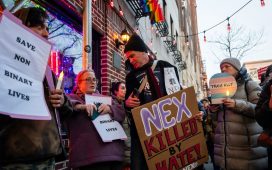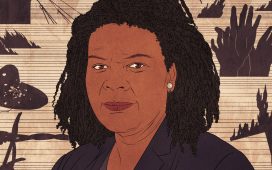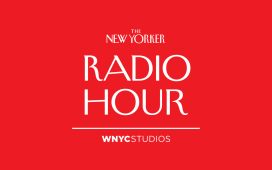A new bill proposed in West Virginia would ban virtually any mention of the LGBTQ+ community in public schools.
HB 2157, which was sponsored by Del. Dean Jeffries (R-Kanawha), would prohibit K-12 schools from acknowledging the existence of queer and transgender people, while also barring the display of pro-LGBTQ+ materials. The bill provides no guidance on what that entails, but it could be interpreted to include an affirming bulletin board, “safe space” stickers, or even rainbow Pride flags.
Introduced on February 10, the extremely short proposal — which is less than a page in length — also prevents schools from the “teaching of sexuality.” It does not lay out a penalty for instructors who violate that provision.
While HB 2157 also does not elaborate on what such instruction might entail, West Virginia Del. Cody Thompson (D-Randolph) pointed out that schools do not “teach sexuality.” In a statement cited by the local CBS affiliate WOWK, Johnson said that phrase could be interpreted in a wide variety of ways by different school systems, potentially preventing vital, life-saving resources.
“The bill will actually prohibit welcoming displays from student-led organizations to proclaim acceptance for all,” Johnson said. “Many schools around our state have GSA organizations that promote the unification of all students regardless of how they identify.”
That characterization would make the bill similar to “No Promo Homo” laws currently on the books in five states — including Alabama, Mississippi and Texas — that prevent teachers from either discussing LGBTQ+ topics in the classroom or mentioning queer and trans people in a positive manner. South Carolina’s law, which was struck down last year, forbade K-12 educators from discussing “homosexual relationships except in the context of instruction concerning sexually transmitted diseases.”
According to WOWK, Jeffries said he introduced HB 2157 because it is “what his constituents find important.” But he acknowledged that its passage is “not a top priority… with hundreds of bills already introduced.”
On that latter note at least, local LGBTQ+ advocacy groups were in firm agreement.
“House Bill 2157 is a bad bill that will harm all of our students,” said Fairness West Virginia in a statement to them. “It was designed to silence teachers from showing any support to their LGBTQ students, but it’s written so broadly that it would likely also prevent health teachers from talking about teen pregnancy or ways to prevent the spread of STDs.”
Fairness West Virginia pointed out that LGBTQ+ youth in the state face some of the highest rates of bullying and harassment in the entire country, with 2017 data from the Centers for Disease Control (CDC) showing that 30% of gay, lesbian and bisexual high school students had attempted to end their lives in the past year. About 14% percent of those students have skipped school out of fear for their safety, as Fairness West Virginia reported in a 2020 survey.
The LGBTQ+ organization’s own survey, meanwhile, found that a majority of students in the state have heard homophobic and transphobic slurs, and have recieved little support from faculty and staff at their schools. More than 90% of faculty reported that their schools had failed to encourage them to support students with LGBTQ+ inclusive lessons.
Positive depictions of LGBTQ+ people in the classroom have been identified as particularly vital in fostering a positive environment for youth, according to GLSEN Deputy Executive Director Melanie Willingham-Jaggers.
“GLSEN’s research has shown that LGBTQ+ inclusive curriculum and other supports for LGBTQ+ students benefits those students’ mental and emotional well-being and make schools safer for everyone,” Willingham-Jaggers said in an emailed statement to them. “West Virginia’s students will be harmed, and their education impoverished, by this dangerous bill.”
The bill has been referred to the House Committee on Education, where its fate is currently unclear. While even its sponsor expressed hesitation about the bill, Republicans command a strong majority in both houses of the West Virginia Legislature: 20 to 14 in the state Senate and 74 to 24 in the House.
But advocacy groups caution that HB 2157 isn’t the only West Virginia bill targeting LGBTQ+ people put forward in 2021. Other legislation currently pending includes Senate Bill 13, which would allow adoption and foster care agencies to refuse placement to same-sex couples in the name of their religious beliefs.
“In a legislative session dominated by ridiculous proposed bills, 2157 truly stands out for its absurdity,” said Joseph Cohen, executive director of the ACLU of West Virginia, in a statement to them. “We are cautiously optimistic this bill will not receive a hearing, but make no mistake: There are numerous bills with potentially more support behind them that target LGBTQ+ youth.”
Get the best of what’s queer. Sign up for them.’s weekly newsletter here.









